Here are excerpts from Frontpage Magazine, May 15, 2008.
Excerpts from the 2008 interview with the author.
FP: So what shockwaves did your exposure of this document set off in the media?
Kengor: Well, I thought it would be a bombshell, which it was, but only within the conservative media.
I prepared myself to be pilloried by the liberal mainstream media, figuring I’d be badgered with all kinds of hostile questions from defenders of Ted Kennedy. I still, at this very moment, carry photocopies and the documentation with me in my briefcase, ready for access at a moment’s notice. I’ve done that for two years now. The pages may soon begin to yellow.
I need not have bothered with any of this prep, since the media entirely ignored the revelation. In fact, the major reviewers didn’t even review the book. It was the most remarkable case of media bias I’ve ever personally experienced.
I couldn’t get a single major news source to do a story on it. CNN, MSNBC, ABC, CBS, NBC. Not one covered it.
(snip)
If I may vent just a little more on the mainstream press, Jamie: There’s a bias there that really is incredibly troubling. Over and over again, I’ve written and submitted the most careful op-eds, trying to remove any partisan edge, on issues like Reagan and Gorbachev privately debating the removal of the Berlin Wall (I have de-classified documents on this in The Crusader as well), on Reagan’s fascinating relationship with RFK, on various aspects of the Cold War that are completely new, based on entirely new evidence from interviews and archives. When I submit these op-ed to the major newspapers, they almost always turn them down. The first conservative source that I send them to always jump at them. The liberals, however, are very close-minded. Nothing is allowed to alter the template. You can construct the most fair, iron-tight case, and they turn it down. This is not true for everything I write on the Cold War era, but no doubt for most of it. And certainly for the case of Senator Kennedy and this KGB document.
FP: How about trying to place some op-eds on the Kennedy document?
Kengor: Here again, all the mainstream sources turned me down. I had no alternative but to place the op-eds in the conservative outlets. Liberal editors blacklisted the piece. I began by sending a piece to the New York Times, where the editor is David Shipley, who’s extremely fair, and in fact has published me before, including a defense I wrote on the faith of George W. Bush. This one, however, he turned down. He liked it. It certainly had his intention. But he said he wouldn’t be able to get it into the page.
I sent it to the Boston Globe, three or four times, actually. I got no response or even the courtesy of an acknowledgment. It was as if the piece was dispatched to the howling wilderness of Siberia—right into the gulag—airbrushed from history.
"It was a May 14, 1983 letter from the head of the KGB, Viktor Chebrikov, to the head of the USSR, the odious Yuri Andropov, with the highest level of classification. Chebrikov relayed to Andropov an offer from Senator Ted Kennedy, presented by Kennedy’s old friend and law-school buddy, John Tunney, a former Democratic senator from California, to reach out to the Soviet leadership at the height of a very hot time in the Cold War."
(snip)
"The thrust of the letter is that Reagan had to be stopped, meaning his alleged aggressive defense policies, which then ranged from the Pershing IIs to the MX to SDI, and even his re-election bid, needed to be stopped. It was Ronald Reagan who was the hindrance to peace. That view of Reagan is consistent with things that Kennedy said and wrote at the time, including articles in sources like Rolling Stone (March 1984) and in a speeches like his March 24, 1983 remarks on the Senate floor the day after Reagan’s SDI speech, which he lambasted as “misleading Red-Scare tactics and reckless Star Wars schemes.”
Even more interesting than Kennedy’s diagnosis was the prescription: According to Chebrikov, Kennedy suggested a number of PR moves to help the Soviets in terms of their public image with the American public. He reportedly believed that the Soviet problem was a communication problem, resulting from an inability to counter Reagan’s (not the USSR’s) “propaganda.” If only Americans could get through Reagan’s smokescreen and hear the Soviets’ peaceful intentions.
So, there was a plan, or at least a suggested plan, to hook up Andropov and other senior apparatchiks with the American media, where they could better present their message and make their case. Specifically, the names of Walter Cronkite and Barbara Walters are mentioned in the document. Also, Kennedy himself would travel to Moscow to meet with the dictator.
Time was of the essence, since Reagan, as the document privately acknowledged, was flying high en route to easy re-election in 1984."
Excerpts from the 2008 interview with the author.
FP: So what shockwaves did your exposure of this document set off in the media?
Kengor: Well, I thought it would be a bombshell, which it was, but only within the conservative media.
I prepared myself to be pilloried by the liberal mainstream media, figuring I’d be badgered with all kinds of hostile questions from defenders of Ted Kennedy. I still, at this very moment, carry photocopies and the documentation with me in my briefcase, ready for access at a moment’s notice. I’ve done that for two years now. The pages may soon begin to yellow.
I need not have bothered with any of this prep, since the media entirely ignored the revelation. In fact, the major reviewers didn’t even review the book. It was the most remarkable case of media bias I’ve ever personally experienced.
I couldn’t get a single major news source to do a story on it. CNN, MSNBC, ABC, CBS, NBC. Not one covered it.
(snip)
If I may vent just a little more on the mainstream press, Jamie: There’s a bias there that really is incredibly troubling. Over and over again, I’ve written and submitted the most careful op-eds, trying to remove any partisan edge, on issues like Reagan and Gorbachev privately debating the removal of the Berlin Wall (I have de-classified documents on this in The Crusader as well), on Reagan’s fascinating relationship with RFK, on various aspects of the Cold War that are completely new, based on entirely new evidence from interviews and archives. When I submit these op-ed to the major newspapers, they almost always turn them down. The first conservative source that I send them to always jump at them. The liberals, however, are very close-minded. Nothing is allowed to alter the template. You can construct the most fair, iron-tight case, and they turn it down. This is not true for everything I write on the Cold War era, but no doubt for most of it. And certainly for the case of Senator Kennedy and this KGB document.
FP: How about trying to place some op-eds on the Kennedy document?
Kengor: Here again, all the mainstream sources turned me down. I had no alternative but to place the op-eds in the conservative outlets. Liberal editors blacklisted the piece. I began by sending a piece to the New York Times, where the editor is David Shipley, who’s extremely fair, and in fact has published me before, including a defense I wrote on the faith of George W. Bush. This one, however, he turned down. He liked it. It certainly had his intention. But he said he wouldn’t be able to get it into the page.
I sent it to the Boston Globe, three or four times, actually. I got no response or even the courtesy of an acknowledgment. It was as if the piece was dispatched to the howling wilderness of Siberia—right into the gulag—airbrushed from history.







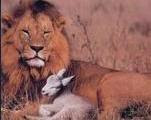










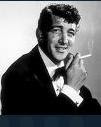






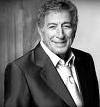










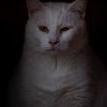













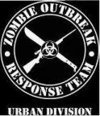







No comments:
Post a Comment